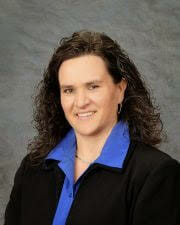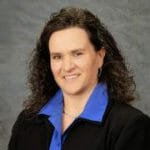
“What we once enjoyed and deeply loved we can never lose, for all that we love deeply becomes part of us.” — Helen Keller.
These past two years of the pandemic have presented clinical challenges such as PPE shortages, evolving policies and procedures based on transmission rates, and relearning certain aspects of medical care to prevent cross-contamination of an elusive virus just to name a few.
Along with these clinical challenges also came a test of personal and emotional fortitude as patients and staff fell ill, some even succumbing to the effects of COVID-19. Our hallway entrances were obscured with zipper tents to protect our residents, family visits were paused, and bingo cards were stored away in cabinets until people could safely gather again.
As COVID-19 cases surged, our staff surged harder to care for, position, feed, console and encourage residents and patients within the unprecedented parameters that became necessary. As sickness and loss mounted, it became apparent that residents, families and staff needed a way to mourn and memorialize those who had passed away.
We recognized that the grief and intense sense of loss experienced by staff and families was due to the deep love for the residents and patients. To this end, we began conducting memorial services in facilities for beloved residents who passed away during the pandemic and were not afforded the same visits and services as during pre-pandemic times.
The memorial services consisted of staff reading poems and handwritten words of remembrance, songs played or sung by staff who also at times happened to be family members of the lost, and inspirational messages spoken by staff who are also ministers. Families and loved ones were invited and encouraged to attend and share virtually. Candles were lit and roses placed in vases as names were read and moments of silence were taken to remember those who had been entrusted to our care and enveloped into our hearts.
As medical professionals who were experiencing increased work hours and decreased peace of mind, it may have been easier to focus on implementing new safety requirements or safeguarding one’s self from the virus. But an unmistakable characteristic began to emerge among the healthcare heroes. PPE gowns became capes and face shields became force fields as resilience arose and these heroes tapped reservoirs of compassion for the most vulnerable in their care. Eye contact became more intentional and
prolonged. Smiles were drawn on masks to bring humor and connection, and generation gaps were bridged as staff introduced residents to Facetime and Zoom to contact their families and loved ones when in-person visits were not possible.
But too often in this pandemic, Facetime calls went silent, personal walkers and wheelchairs were stored away, and closets were boxed up waiting for families to be able to retrieve their loved ones’ belongings. Chairs in dining rooms sat empty and beds where the residents once recovered from illnesses and shared their life stories with others stood empty with crisp linens tucked neatly under corners. The emptiness and grief was deafening. Face shields could not prevent the tears. Our memorial services were as much for the grieving as the grieved.
We honor those we have lost through this pandemic as well as the healthcare workers who mercifully cared for them. And in the words of Patch Adams, “You treat a disease, you win, you lose. You treat a person, I guarantee you, you’ll win – no matter what the outcome.”
Sara Bender, PT, CES, OM, is the Director of Education and Clinical Services for EncompassCare.
The opinions expressed in McKnight’s Long-Term Care News guest submissions are the author’s and are not necessarily those of McKnight’s Long-Term Care News or its editors.





